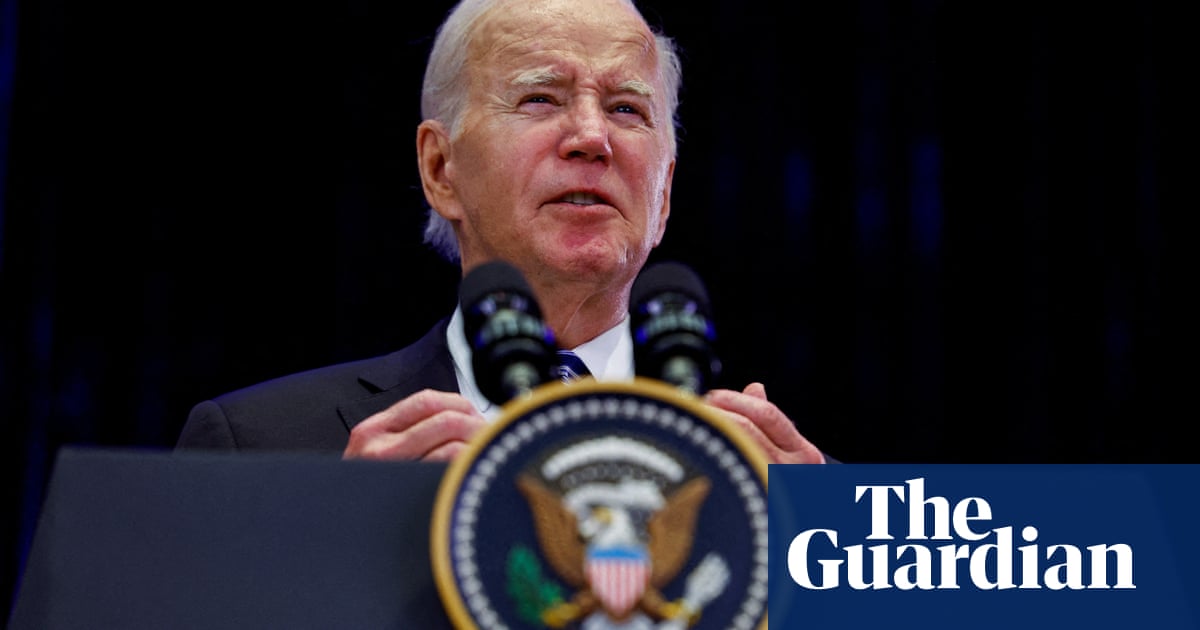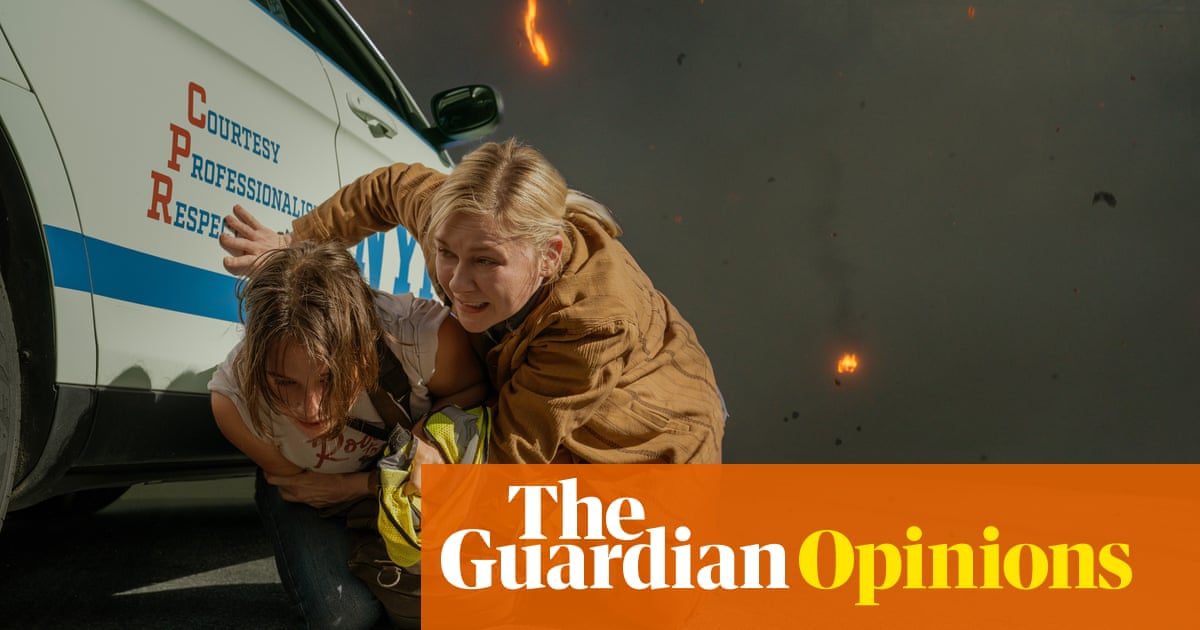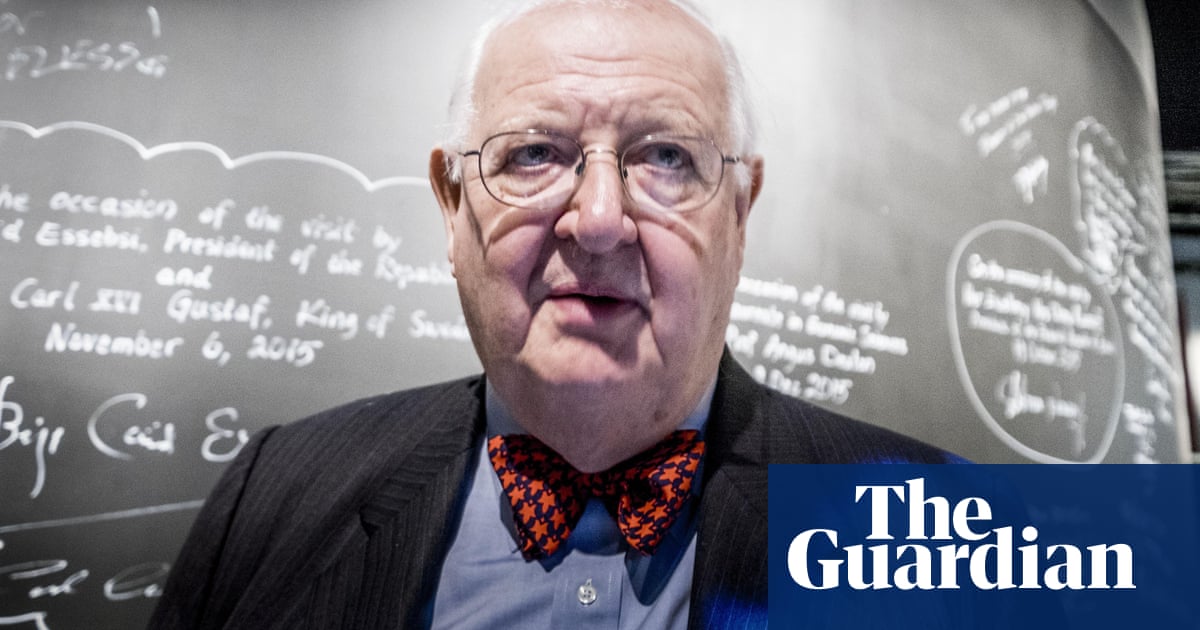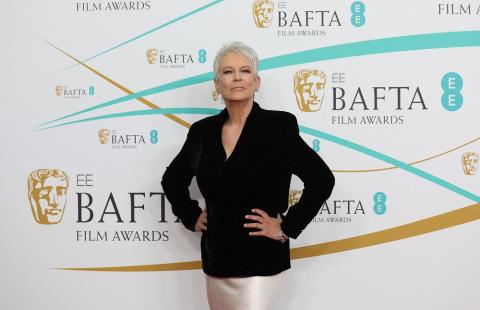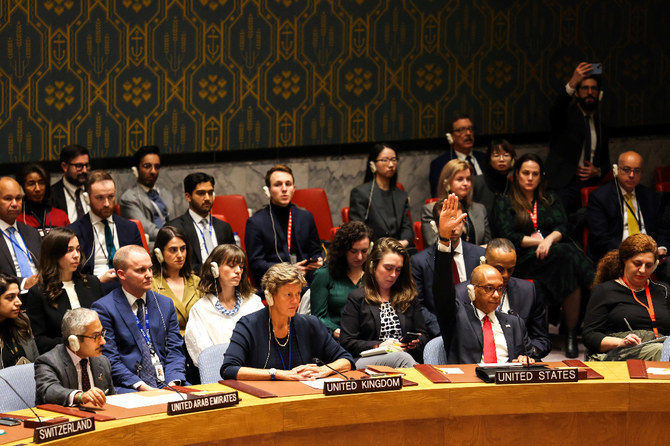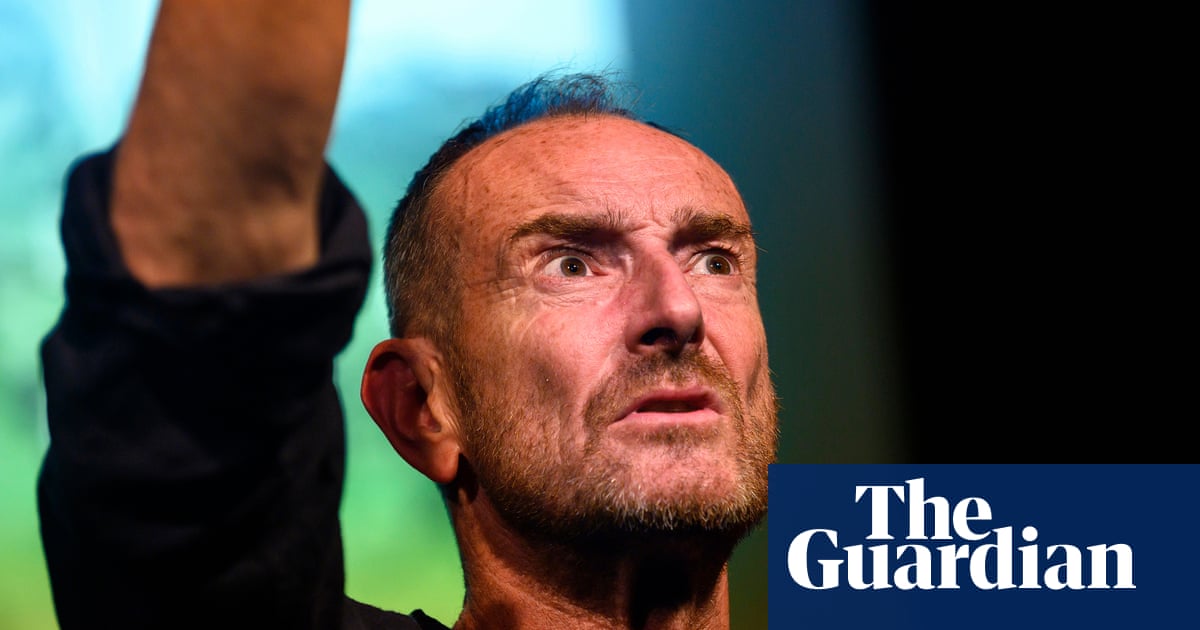
Was Henry Naylor’s agent right when he warned the writer and comic, at the height of the “war on terror”, that “Afghanistan is not funny”? To a certain brand of comedian, that kind of remark is always going to sound like a challenge. The darker the reality, after all, the greater the potential for gut-wrenching gallows humour. That’s part of what Naylor was after back in 2003, when he wrote the Edinburgh fringe play Finding Bin Laden – whose creation he now revisits, in a solo show about his own relationship with Afghanistan, two decades on.
As both an autobiographical chronicle of Naylor’s career in satire and a reflection on our responsibilities to Afghanistan, the show – which ran at last year’s fringe and now arrives at the Arcola theatre in east London – raises interesting questions. Not the least of them concerns the BBC’s supposed policy of “taste and decency” (words Naylor practically spits out here) when it comes to reporting on – and joking about – war. Naylor, who wrote for Spitting Image, is on the verge of his big break as a satirist back in 2001, his newsy comedy show about to run on the radio when two planes hit the World Trade Center in New York. Standards guidelines kick in immediately. Naylor’s comedy is deemed no longer appropriate.
The play he eventually writes about this period, Finding Bin Laden, mocked the news values that forbade any screen footage of dead bodies yet cast the BBC’s John Simpson as the single-handed liberator of Kabul. It was, as depicted here, a big career success for Naylor – but not one that brought him any closure on the west’s fraught relationship with Afghanistan. Twenty years on, as the country falls to the Taliban again, uneasy memories are stirred for the comic and playwright – which lead him to therapy, and form the framing device for this reminiscent solo show.
Its argument – not surprising but worth restating – is that the west has treated Afghanistan abominably. First we rained bombs on it and called ourselves liberators. Then, in the fullness of time, we abandoned it to the same regime from which we’d supposedly set it free. Naylor tells this story mainly via his own experience of visiting the country in 2003 to research his Edinburgh play. He travels with his photographer friend, Sam Maynard, whose images adorn the upstage screen. He recruits an Afghan fixer, a friendly surgeon making vital extra funds on the side. They narrowly avoid stepping on landmines, and get in a scary scrape with the mujahideen. Naylor is made to reflect on his own selfishness, endangering others’ lives for the sake of a fringe hit.
It’s an engaging 75 minutes, although might have been equally so had Naylor just talked us through the slide show. I found the medium – dramatised autobiography, with long diversions into the movie Naylor nearly made with Hugh Grant – a little at odds with his message about decentring ourselves from Afghanistan’s story. That message is delivered clunkily at the play’s conclusion, as Naylor’s peripheral characters – his therapist, his Glaswegian pal – manhandle him towards enlightenment. But Naylor remains a compelling raconteur and you never doubt that his haunting by Afghanistan – in particular, by a girl approaching him on the last day of his trip, with a mysterious bundle in her arms – is genuine.
What it isn’t, give or take a running gag about visiting a war zone to validate a fringe play, is very amusing. I started watching Afghanistan Is Not Funny assuming the title to be ironic; that Naylor, as a comic, couldn’t subscribe to that view. But by its end, it feels more like an expression of his hard-won perspective. Topical joking is all well and good; funny plays about war zones likewise. But sometimes there are dead bodies on the ground, children losing limbs, a people abandoned to a dire fate – against which laughter, far from being the best medicine, doesn’t feel like much of a tonic whatsoever.
Afghanistan Is Not Funny is at the Arcola, London, until 11 March




